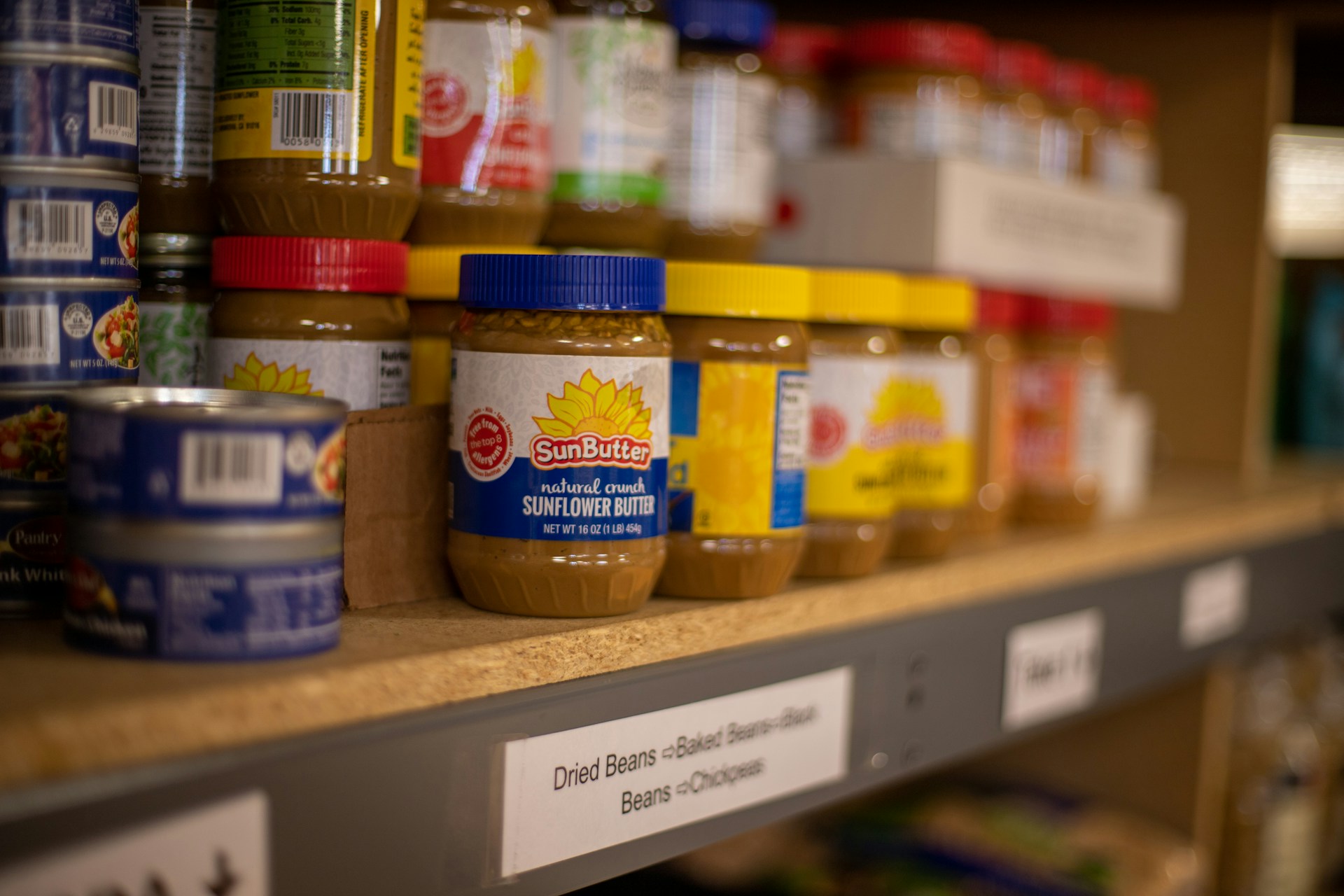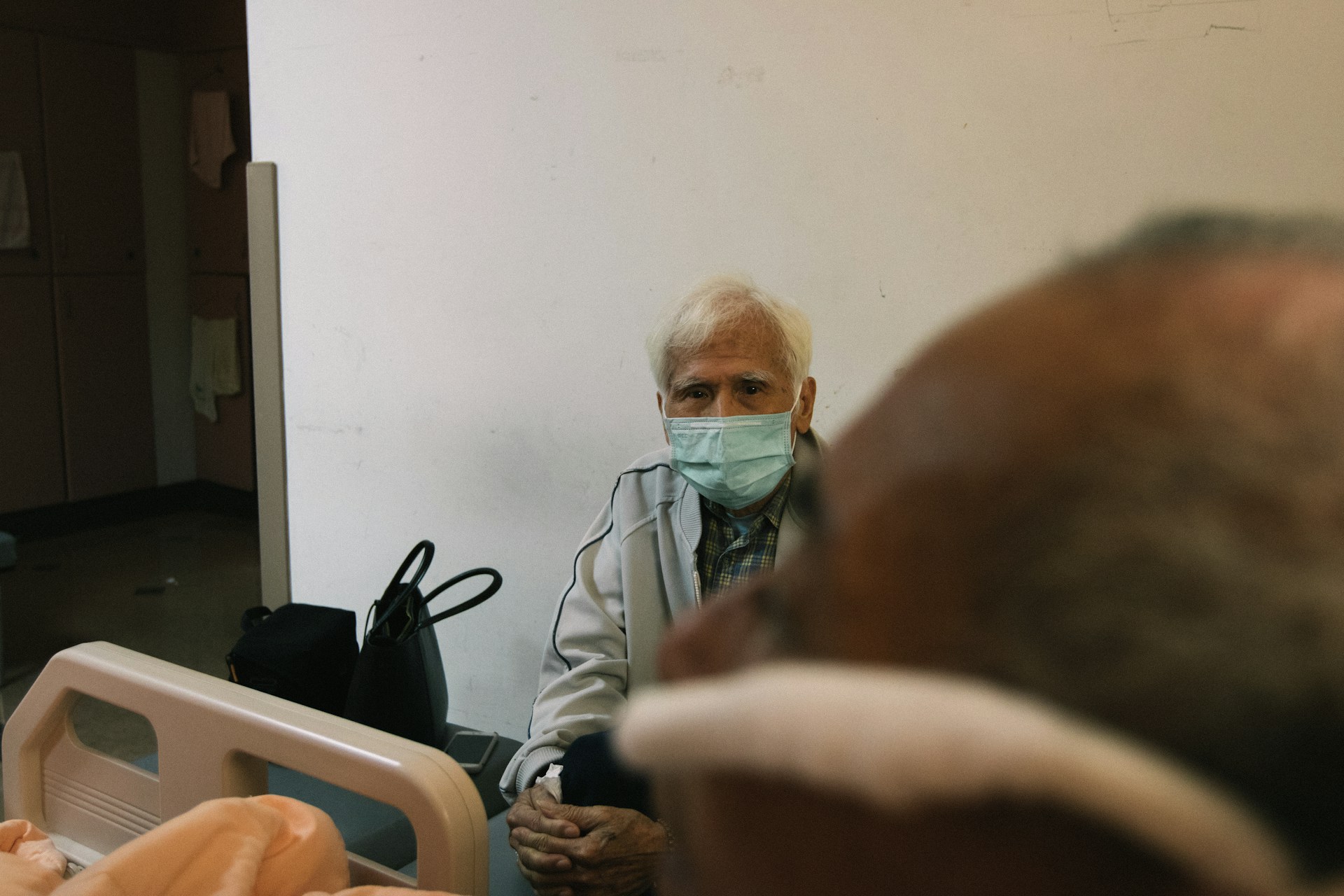Determinants of Wasted Among Age 6-59 Months: The Indonesia Family Life Survey 2014
Determinan Wasting pada Usia 6-59 Bulan: Indonesia Family Life Survey 2014

Downloads
Background: Nutritional status is an issue of concern especially in developing countries. The Sustainable Development Goals (SDGs) include a wasting target, namely reducing the proportion of children suffering from wasting to <5% in 2025 and <3% in 2030. In Indonesia, in 2019 and 2021, the prevalence of wasting was 7.4% and 7.1%, respectively.
Objectives: The purpose of this study was to determine the determinants of wasting in children aged 6-59 months in Indonesia based on data from the fifth cross-sectional Indonesia Family Life Survey (IFLS) in 2014.
Methods: A Cross-sectional study from IFLS 2014 on 2672 children (6-59 months) was conducted. The independent variables were history of acute respiratory infection (ARI), history of diarrhea, frequency of meals, immunization, environmental health, monthly per capita expenditure (PCE), and the location of the child's residence. The dependent variable was wasting, which is measured by weight and height. Data analysis consisted of using the chi-square test.
Results: The results showed that there was a significant relationship between environmental health (p-value<0.01), monthly per capita expenditure (p-value<0.01), and the child's place of residence (p-value<0.01) with wasting in children aged 6-59 months.
Conclusions: There is a significant relationship between environmental health, monthly per capita expenditure, and location of residence and wasting among children aged 6-59 months. Priorities in making health policies to reduce wasting may differ from region to region.
Alamsyah, D. et al. (2017) ‘Beberapa Faktor Risiko Gizi Kurang dan Gizi Buruk pada Balita 12-59 Bulan (Studi Kasus di Kota Pontianak)', Jurnal Epidemiologi Kesehatan Komunitas, 2(1), p. 46. doi:10.14710/jekk.v2i1.3994.
Amirah, A.N. and Rifqi, M.A. (2019) ‘Karakteristik, Pengetahuan Gizi Ibu dan Status Gizi Balita (BB/TB) Usia 6-59 bulan', Amerta Nutrition, 3(3), p. 189. doi:10.20473/amnt.v3i3.2019.189-193.
Bappenas (2011) ‘Rencana Aksi Nasional Pangan dan Gizi (RAN-PG) Tahun 2011-2015', Jakarta, pp. 1–86. Available at: https://www.bappenas.go.id/files/4613/5228/2360/ran-pg-2011-2015.pdf.
Bappenas (2021) Rencana Aksi Pangan Dan Gizi Tahun 2021-2024. Jakarta. Available at: https://jdih.bappenas.go.id/data/abstrak/2021-KEPMEN-PPN-124-Rencana_Aksi_Nasional_Pangan_dan_Gizi_tahun_2021-2024.pdf (Accessed: 22 August 2022).
Bidira, K., Tamiru, D. and Belachew, T. (2021) ‘Anthropometric failures and its associated factors among preschool-aged children in a rural community in southwest Ethiopia', PLoS ONE, 16, pp. 1–14. doi:10.1371/journal.pone.0260368.
Depkes RI (2011) Buku Saku Petugas Kesehatan Lintas Diare. 2011th edn, Departemen Kesehatan RI, Direktorat Jendral Pengendalian Penyakit dan Penyehatan Lingkungan. 2011th edn. Indonesia: Departemen Kesehatan Republik Indonesia (C-Change).
Gizaw, Z., Woldu, W. and Bitew, B.D. (2018) ‘Acute malnutrition among children aged 6-59 months of the nomadic population in Hadaleala district, Afar region, northeast Ethiopia', Italian Journal of Pediatrics, 44(1), pp. 1–10. doi:10.1186/s13052-018-0457-1.
Islam, F. et al. (2021) Dasar-Dasar Kesehatan Lingkungan. 1st edn. Edited by A. Rikki. Mamuju: Yayasan Kita Menulis.
Kemenkes and Litbangkes (2021) buku saku hasil studi status gizi indonesia (SSGI) tingkat nasional, provinsi, dan kabupaten/kota tahun 2021, Angewandte Chemie International Edition, 6(11), 951–952. Available at: https://www.litbang.kemkes.go.id/buku-saku-hasil-studi-status-gizi-indonesia-ssgi-tahun-2021/ (Accessed: 29 March 2022).
Kemenkes RI, L. (2013) Laporan Nasional Riskesdas 2013, Badan Penelitian dan Pengembangan Kesehatan. Indonesia. Available at: https://www.litbang.kemkes.go.id/laporan-riset-kesehatan-dasar-riskesdas/ (Accessed: 30 March 2022).
Kemenkes RI, L. (2018) Laporan Nasional Riskesdas 2018, Badan Penelitian dan Pengembangan Kesehatan. Jakarta. Available at: https://www.litbang.kemkes.go.id/laporan-riset-kesehatan-dasar-riskesdas/ (Accessed: 30 March 2022).
Majestika, S. (2018) Status Gizi Anak dan Faktor yang mempengaruhi. 1st edn, UNY Press. 1st edn. Edited by S. Amalia. Cilcap: Anggota Ikatan Penerbit Indonesia (IKAPI) Anggota Asosiasi Penerbit Perguruan Tinggi Indonesia (APPTI). Available at: https://www.google.co.id/books/edition/STATUS_GIZI_ANAK_DAN_FAKTOR_YANG_MEMPENG/gjxsDwAAQBAJ?hl=id&gbpv=1&printsec=frontcover.
Masriadi (2017) Epidemiologi Penyakit Menular. 2nd edn. Depok: Rajagrafindo Persada. Available at: https://www.google.co.id/books/edition/Epidemiologi_Penyakit_Menular_Rajawali_P/D-gdEAAAQBAJ?hl=id&gbpv=0.
Mkhize, M. and Sibanda, M. (2020) ‘A review of selected studies on the factors associated with the nutrition status of children under the age of five years in South Africa', International Journal of Environmental Research and Public Health, 17(21), pp. 1–26. doi:10.3390/ijerph17217973.
Nepali, S., Simkhada, P. and Davies, I.G. (2020) ‘Association between wasting and food insecurity among children under five years: Findings from Nepal demographic health survey 2016', BMC Public Health, 20(1), pp. 1–7. doi:10.1186/s12889-020-09146-x.
Nurrika, D. et al. (2020) ‘Education level, monthly per-capita expenditure, and healthy aging in the older Indonesian population: The Indonesia family life survey 2007 and 2014', Tohoku Journal of Experimental Medicine, 250(2), pp. 95–108. doi:10.1620/tjem.250.95.
Par'i, H.M., Wiyono, S. and Harjatmo, T.P. (2017) Buku Ajar Penilaian Status Gizi. 1st edn, Pusat Pendidikan dan Sumber Daya Manusia Kesehatan. 1st edn. Edited by Widyasari, D.A. Nofaldo, and Sapriyadi. Jakarta: Pusat Pendidikan dan Sumber Daya Manusia Kesehatan. Available at: http://bppsdmk.kemkes.go.id/pusdiksdmk/wp-content/uploads/2017/11/PENILAIAN-STATUS-GIZI-FINAL-SC.pdf (Accessed: 23 August 2022).
Rand Corporation (2022) RAND Indonesian Family Life Survey (IFLS) | RAND. Available at: https://www.rand.org/well-being/social-and-behavioral-policy/data/FLS/IFLS.html (Accessed: 6 April 2022).
Republik Indonesia (2020) Peraturan Menteri Kesehatan Republik Indonesia Nomor 2 Tahun 2020 Tentang Standar Antropometri Anak. Jakarta: Kementerian Kesehatan RI. Available at: http://hukor.kemkes.go.id/uploads/produk_hukum/PMK_No__2_Th_2020_ttg_Standar_Antropometri_Anak.pdf (Accessed: 29 March 2022).
Sato, R. (2021) ‘Association between uptake of selected vaccines and undernutrition among Nigerian children', Human Vaccines and Immunotherapeutics, 17(8), pp. 2630–2638. doi:10.1080/21645515.2021.1880860.
Setyawati, V.A.V. and Hartini, E. (2018) Buku Ajar Dasar Ilmu Gizi Kesehatan Masyarakat. 1st edn, Deepublish. 1st edn. Edited by H. Rahmadhani and I. Fatria. Yogyakarta: Deepublish. Available at: https://www.google.co.id/books/edition/Buku_Ajar_Dasar_Ilmu_Gizi_Kesehatan_Masy/YACDDwAAQBAJ?hl=id&gbpv=0 (Accessed: 23 August 2022).
Sewnet, S.S. et al. (2021) ‘Undernutrition and associated factors among under-five orphan children in Addis Ababa, Ethiopia, 2020: A cross-sectional study', Journal of Nutrition and Metabolism, 2021. doi:10.1155/2021/6728497.
Sitoayu, L. et al. (2021) ‘The Correlation of Infants ' Feeding (PMBA) History and Infectious Diseases with Malnutrition Status (Wasting) in Children 6-24 Months of Age at Puskesmas Poris Plawad', Jurnal Sains Kesehatan, 28(2), pp. 1–11. Available at: https://jurnal.stikestrimandirisakti.ac.id/index.php/jsk/article/view/144/pdf.
Strauss, J., Sikoki, B. and Witoelar, F. (2016) The Fifth Wave of the Indonesia Family Life Survey (IFLS): Overview and Field Report. Available at: http://www.rand.org/content/dam/rand/pubs/working_papers/WR1100/WR1143z2/RAND_WR1143z2.pdf.
Strauss, J. and Witoelar, F. (2019) Indonesia Family Life Survey 5 And IFLS EAST, Surveymeter. doi:10.1007/978-3-319-69892-2_339-1.
Strauss, J., Witoelar, F. and Sikoki, B. (2016) User's Guide for the Indonesia Family Life Survey, Wave 5: Volume 2, Rand Labor and Population Working Paper Series. doi:10.7249/wr1143.2.
UNICEF (2016) Conceptual Framework of Determinants of Undernutrition - Reproductive, Maternal, Newborn, and Child Health. Available at: https://www.ncbi.nlm.nih.gov/books/NBK361900/figure/part2.ch11.sec1.fig1/#_ncbi_dlg_citbx_NBK361900 (Accessed: 21 August 2022).
UNICEF et al. (2020) Global action plan on child wasting: a framework for action to accelerate progress in preventing and managing child wasting and the achievement of the Sustainable Development Goals.
UNICEF, WHO and Group, W.B. (2021) Joint Child Malnutrition Estimates : Key findings of the 2021 edition, Who. Available at: https://www.who.int/publications/i/item/9789240025257 (Accessed: 15 March 2022).
UNICEF, WHO and World Bank Group (2020) Levels and trends in child malnutrition: Key findings of the 2020 Edition of the Joint Child Malnutrition Estimates., Geneva: WHO. Available at: https://www.who.int/publications/i/item/9789240003576 (Accessed: 15 March 2022).
United Nations Children's Fund (2015) UNICEF ' s Approach to Scaling Up Nutrition for Mothers and Their Children., UNICEF. Available at: http://www.acp.int/sites/acpsec.waw.be/files/UNICEF.pdf (Accessed: 29 March 2022).
WHO (2020) Global Nutrition Report 2020 : Action on equity to end malnutrition, Global Nutrition Report. Edited by N. Behrman. Bristol, UK: Development Initiatives Research Proverty. Available at: https://resourcecentre.savethechildren.net/document/global-nutrition-report-2020-action-equity-end-malnutrition/.
Witoelar, F. (2009) ‘Note on The Construction of the IFLS Consumption Expenditure Aggregates', The World Bank Research Committee [Preprint], (August).
Yeshaneh, A. et al. (2022) ‘Prevalence of wasting and associated factors among children aged 6-59 months in Wolkite town of the Gurage zone, Southern Ethiopia, 2020. A cross-sectional study', PLoS ONE, 17(1 January), pp. 1–12. doi:10.1371/journal.pone.0259722.
Zaba, T. et al. (2021) ‘Factors associated with acute malnutrition among children 6-59 months in rural Mozambique', Maternal and Child Nutrition, 17(1), pp. 1–8. doi:10.1111/mcn.13060.
Copyright (c) 2023 Amerta Nutrition

This work is licensed under a Creative Commons Attribution-ShareAlike 4.0 International License.
AMERTA NUTR by Unair is licensed under a Creative Commons Attribution-ShareAlike 4.0 International License.
1. The journal allows the author to hold the copyright of the article without restrictions.
2. The journal allows the author(s) to retain publishing rights without restrictions
3. The legal formal aspect of journal publication accessibility refers to Creative Commons Attribution Share-Alike (CC BY-SA).
4. The Creative Commons Attribution Share-Alike (CC BY-SA) license allows re-distribution and re-use of a licensed work on the conditions that the creator is appropriately credited and that any derivative work is made available under "the same, similar or a compatible license”. Other than the conditions mentioned above, the editorial board is not responsible for copyright violation.












































